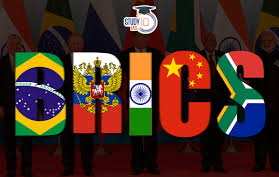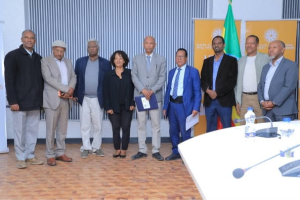The Horn of Africa, a region rife with historical tensions and geopolitical complexities, appears increasingly vulnerable to destabilization. Central to this turmoil is Egypt, whose focus seems more aligned with its interests in the Arab world than with fostering constructive relationships in Africa.
Egypt’s primary concerns revolve around its relationships with other Arab nations rather than engaging with the pressing issues facing its African neighbours. This is particularly evident in its long-standing disputes with Ethiopia over the Nile River, a critical resource for both nations. Egypt, as a downstream country, has historically sought to control the river’s resources, often relying on colonial-era agreements to assert its claims. These agreements, however, have been contested by Ethiopia, which advocates for equitable water resource management that benefits all countries dependent on the Nile.
In a significant move towards collaboration, Ethiopia, along with five other upper basin countries, recently ratified the Nile Basin Cooperative Framework Agreement (CFA). This agreement is aimed at promoting sustainable and cooperative management of the Nile’s resources, a step that Egypt views with worry. The CFA represents a shift in the balance of power regarding Nile water rights, one that undermines Egypt’s historical claims and its attempts to monopolize the river’s use.
Egypt’s dissatisfaction with Ethiopia’s progress on the Grand Ethiopian Renaissance Dam (GERD) and by the CFA has further fuelled tensions. The GERD, which Ethiopia views as a symbol of national pride and a means to achieve energy independence, has been a source of anxiety for Cairo. As Ethiopia moves forward with this mega project, Egypt’s attempts to destabilize the region seem to be intensifying.
Rather than seeking dialogue and cooperation, Cairo appears to be exploiting existing disagreements between Ethiopia and Somalia to further its agenda. The recent military agreements between Egypt, Somalia, and Eritrea raise alarms about Egypt’s intentions in the region. Presenting itself as a peacemaker in Somalia, Egypt’s actions could serve to exacerbate tensions rather than alleviate them.
The potential consequences of Egypt’s involvement in Somalia are concerning. Analysts fear that these military agreements could destabilize not only Somalia but also the wider Horn of Africa, which is already grappling with issues such as terrorism, political unrest, and humanitarian crises
Furthermore, the alignment of Egypt with Somalia and Eritrea could lead to increased military posturing and conflict, undermining efforts for peace and stability that are crucial for the Horn of Africa’s development.
Dawit Mezegebe is a lecturer at Dilla University and a Ph.D. candidate at the Centre for African and Asian Studies of the Addis Ababa University (AAU-CAAS) and is also a member of the African Studies Professional Association think-tank. He raised concerns regarding Egypt’s recent agreement with Somalia. Speaking to the Ethiopian Press Agency (EPA), he argues that the agreement is not intended to benefit the Somali government but rather serves Egypt’s goals of regional destabilization.
Dawit asserts that Egypt’s military support for Somalia extends beyond merely arming the militant group Al- Shabaab; he describes it as an illegal arms transfer. He warns that this threat is not limited to the Horn of Africa but poses risks globally, given the interconnectedness of terrorist networks.
According to Dawit, Egypt’s objective is to equip Al-Shabaab and similar groups to further its own interests rather than engage in genuine diplomatic efforts. He explains that the weapons supplied to Somalia could enhance the operational capacity of Al-Shabaab. He points out that the unchecked proliferation of arms from powerful nations in on-going global conflicts contributes to this issue.
Reflecting on historical context, Dawit notes that Ethiopia played a critical role in establishing a transitional government in Somalia following the fall of Siad Barre in the 1990s. He emphasizes that the Horn of Africa is not lacking in weaponry but rather in ambition for regional infrastructure and development.
He highlights the challenges posed by the absence of a permanent African seat on the United Nations Security Council, which exacerbates rivalries on the continent. He advocates for diplomatic solutions, emphasizing that cultural, linguistic, and religious ties connect the region.
Dawit highlights the African Union’s weakness in addressing Egypt’s actions, emphasizing that Egypt’s involvement in the Horn of Africa affects Somalia’s neighbouring peace efforts. He advocates for a diplomatic approach to African issues, rooted in the principle of African solutions, and suggests legal measures for accountability.
Director of Interaction for Change in Africa (ICA), an Independent Think Tank, Worku Yakob (PhD), offers a contrasting perspective. He does not believe that Egypt’s military support will significantly strengthen Al-Shabaab but warns that it could exacerbate existing tensions between Somalia and Ethiopia. He argues that the collaboration among Egypt, Somalia, and Eritrea lacks meaningful significance, particularly in light of recent arms deals amid rising tensions.
Worku contends that Egypt’s ambitions to control the Nile’s waters have led to increased regional destabilization, particularly as its previous diplomatic efforts have faltered. He suggests that one of Egypt’s goals is to undermine the Ethiopian government in the on-going proxy war, diverting attention from the contentious Abbay Dam issue.
He concludes that if the Ethiopian government navigates the situation carefully and raises awareness about these developments, the tripartite agreement involving Eritrea, Somalia, and Egypt may exert less pressure on Ethiopia. To counter Egypt’s agenda, he advocates for the swift operationalization of the Abbay Dam to electricity production for Ethiopians and all consuming nations.
Overall as the situation unfolds, the importance of dialogue and collaboration among the countries of the Horn of Africa cannot be overstated. To navigate these complex relationships, it is imperative that regional leaders prioritize mutual interests and work towards equitable solutions for resource management. Only through cooperative efforts can the Horn of Africa hope to achieve lasting peace and stability.
Ethiopia’s commitment to equitable water resource management, alongside its neighbours, offers a pathway to a more harmonious coexistence. However, the continued interference from Egypt presents a significant challenge. Also, the best option for Cairo is to ratify the CFA and refrain from exacerbating regional tensions. As a downstream country, Egypt should accept the equitable utilization of the Nile River; otherwise, it risks taking wrongful actions. During a press briefing on the CFA’s officially entered into force, Ethiopia’s Minister of Water and Energy, Engineer Habtamu Itefa, urged Egypt to join the CFA for the benefit of all basin countries.
BY EYUEL KIFLU
THE ETHIOPIAN HERALD SUNDAY EDITION 20 OCTOBER 2024





